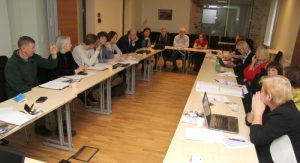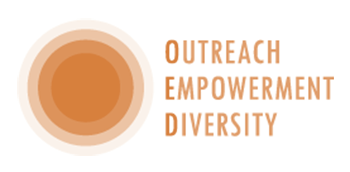IMPLEMENTING OUTREACH, EMPOWERMENT, DIVERSITY. In Estonia, reaching out to disadvantaged learners has not only been in the focus of the ImplOED project, but of the whole participating organisation, ENAEA.
 Working with the OED concept convinced Estonian Non-formal Adult Education Association (ENAEA) that diversity of member organisations is a strength and provides more capacity to work for the outreach and empowerment of adult learners.
Working with the OED concept convinced Estonian Non-formal Adult Education Association (ENAEA) that diversity of member organisations is a strength and provides more capacity to work for the outreach and empowerment of adult learners.
As its ImplOED activities, ENAEA organised a set of learning communities and meeting with local decision-makers and adult education practitioners.
Learning communities on outreach
ENAEA’s learning communities were set up for key learning providers, third sector organisations and other local institutions. The learning communities discussed how to reach out to adults who have less access to lifelong learning in Estonia.
The participants emphasised the necessity to collaborate with each in order to get the participant levels of lifelong learning rise.
Cooperation with national networks and authorities
To further discuss the cooperation, ENAEA organised several meetings with national organisations and decision-makers. An administrative reform in the country will lower the number of municipalities in the future, which will make the new municipalities more powerful, Tiina Jääger believes.
Within the meetings, access to lifelong learning was seen as a key issue.
In a meeting with the Rakvere City Government, it was stated that lifelong learning is a key for wider access of disadvantaged adults in learning activities.
Young adults in focus
ENAEA also organised an event in October 2017 to discuss the cooperation between non-formal and formal education sectors in reaching out to young adults. The participants pointed out the need for more collaboration of higher secondary schools and vocational schools to have common learning modules. At the same time, the role of non-formal learning is to reach out to adults not in education, employment, or training (NEET) and those who have dropped out from school to provide them with learning skills to be able to continue their learning journey.
Text: Maire Sander
Photo: ENEA
